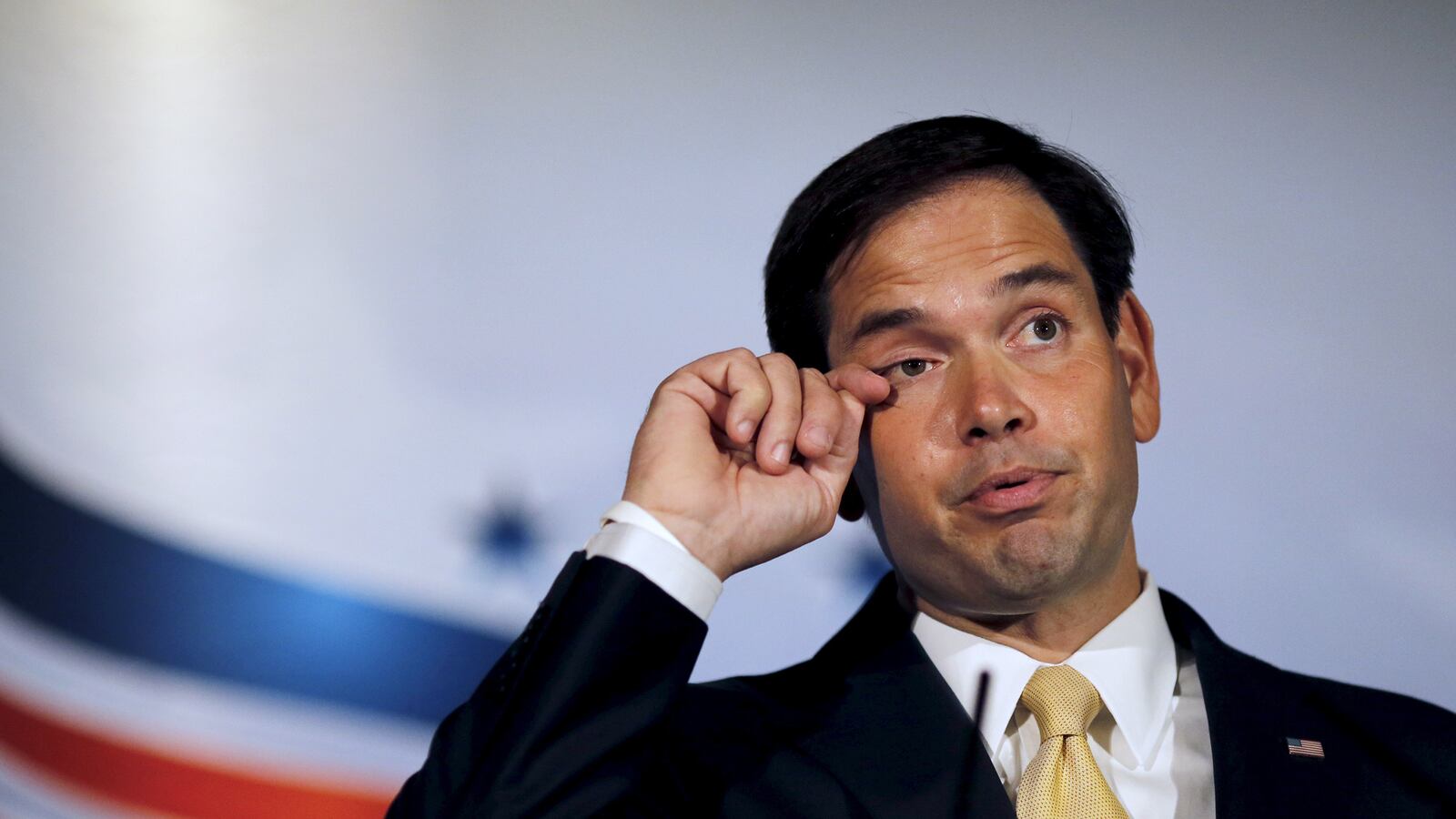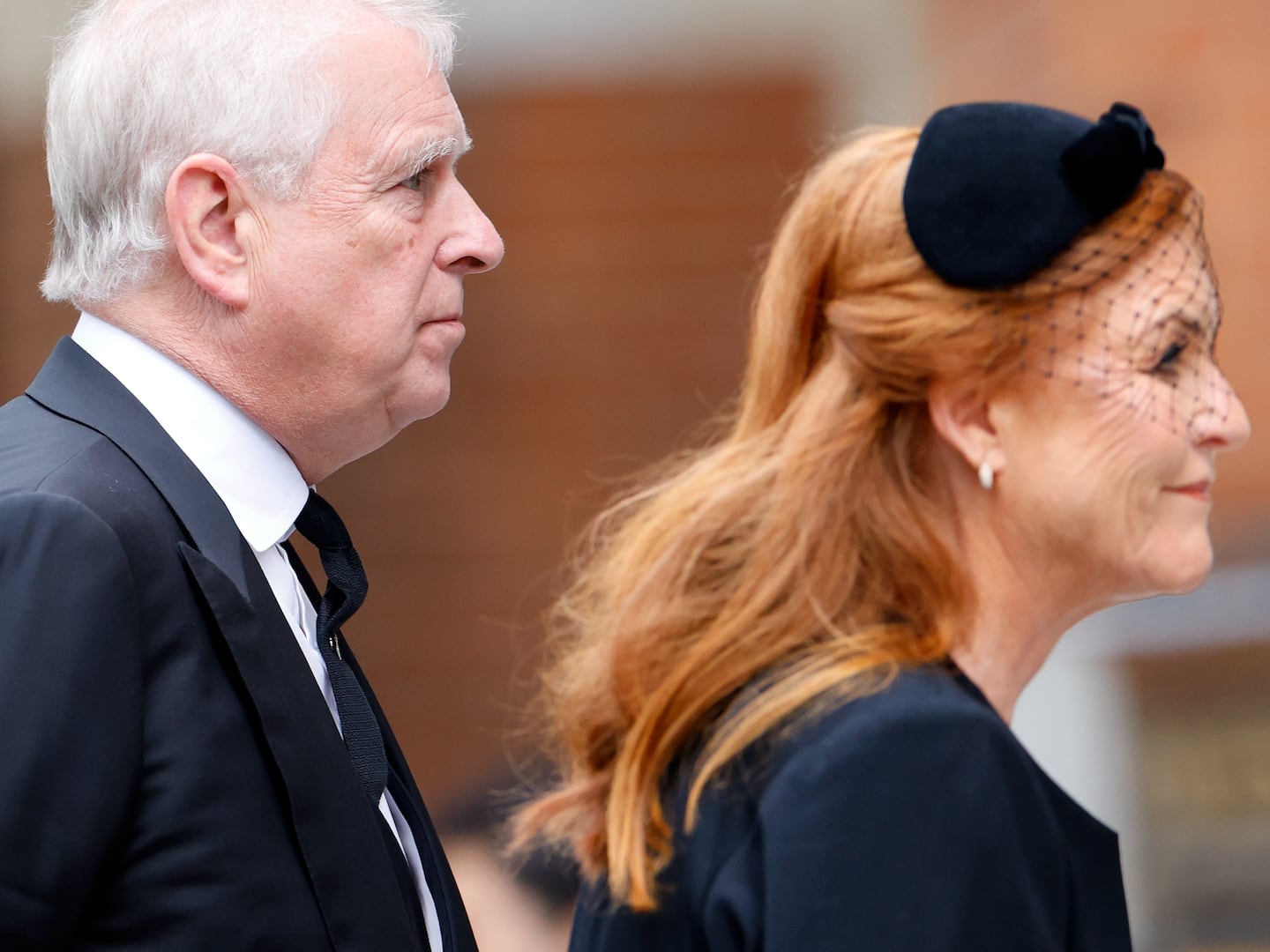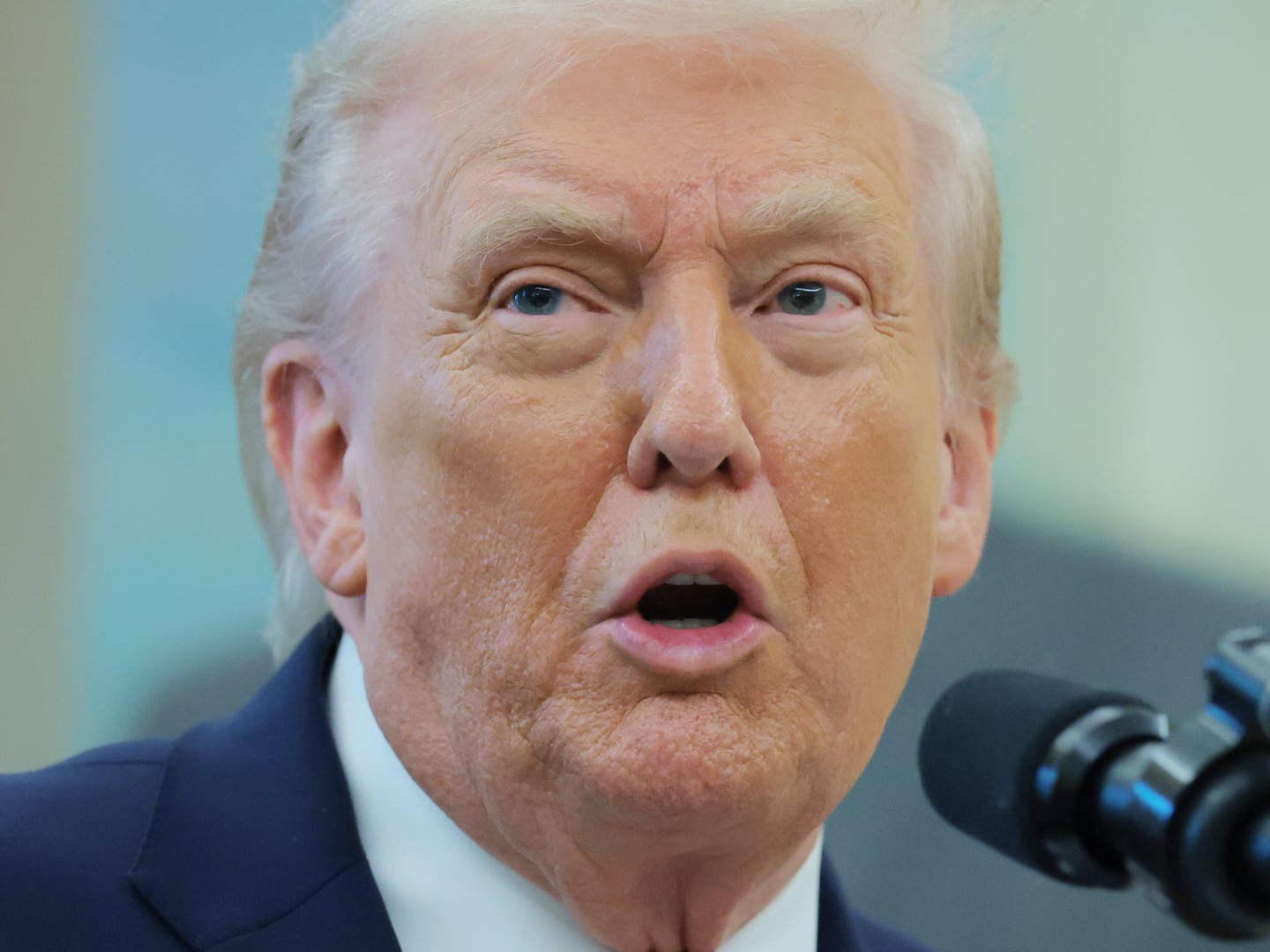MANCHESTER, N.H. — What if George W. Bush’s real brother—ideologically, at least—is Senator Marco Rubio?
Rubio barnstormed the Granite State on Thursday, bringing with him a campaign stump speech that was heavy on the compassionate conservatism and deeply hawkish foreign policy closely associated with Bush 43.
The Florida senator can embrace George W. Bush’s message and rhetorical stylings—higher defense spending and domestic policies that will appeal to conservatives but targeted at lower-income Americans—but with the personal authority to speak about the poor in this country. And he can do it without the dynastic baggage that fellow 2016er Jeb Bush brings to the presidential contest.
The Republican Party hasn’t seen compassionate conservatism in a while. During the heyday of the Tea Party movement, Republicans around the country decried Obama as a food stamp president and demanded drug testing for welfare recipients. Former GOP presidential candidate Mitt Romney came off as apathetic to the poor, and his “47 percent” comments cemented his reputation as a heartless plutocrat in the minds of many voters.
But Rubio grew up the son of a bartender and a maid, both immigrants. He has a mortgage—just one—that he and his wife pay on the fifth of every month. The Florida senator can speak with familiarity about being poor—which couldn’t be said of Romney, a gazillionaire memorably described by Mike Huckabee as “the guy who fires you”; John McCain, the son and grandson of admirals; and George W. Bush, the son of a president.
There are a lot of negative connotations in being compared to George W. Bush. But with Bush’s approval rating recovering with the passage of time, Rubio brings a new face—and new personal authority—to an older perspective on conservatism.
“We have to reinvigorate our economy, and that begins with recognizing the plight of millions of Americans who today live paycheck to paycheck,” Rubio told a small group of New Hampshire voters at the Derry-Salem Elks Lodge on Thursday. “Do you know why I’m a conservative, why I love free enterprise? Because it’s the only economic model in the history of the world where people like me even have a chance.”
And Rubio’s emphasis on increased defense spending and a renewed willingness to use America’s military might abroad is also reminiscent of George W. Bush. Asked by an attendee what he would do in his first 100 days in the White House, Rubio's first three off-the cuff ideas were about national security.
“I would immediately ask Congress for a supplemental budget authority to increase defense spending,” Rubio said. It was a topic he hammered over and over again: “We need a strong America on the global stage, because nothing else matters if we’re not safe. And that starts with having the strongest military in the world. Today we are eviscerating our military, we have had rapid reductions in defense spending... We can’t solve all the world's problems, but we can always be on the side of moral clarity.”
But the capital-B, capital-I Big Idea that Rubio is campaigning on is that the things that guaranteed middle-class stability and opportunity for the poor in the 20th century no longer work today. Touching on subjects ranging from social security to whether a college education will guarantee a job to the Veterans Administration, Rubio held three town halls in New Hampshire, all of which touched on how to improve the lot of the less well off.
“One of the fundamental issues that I’ve been campaigning on is the argument that the 21st century is dramatically different from the 20th, that things that used to work in the past don’t work as well now because the world has changed,” Rubio said at a Concerned Veterans for America event, where he urged reforms to the VA system broadly, Tri-Care military health insurance, and the vets’ disability claims process.
Rubio also wants to reform the higher education system. He wants more students to pursue technical degrees, and college credit to be more easily granted for students with work experience or military service. A military service member who served two tours in Iraq shouldn’t be made to sit through a course on modern Middle Eastern politics, he said.
“In the 21st century it is not enough to just have a college degree,” Rubio said. He wants college loans to be granted only after colleges tell each student the average annual wage for the major and degree that they’ve chosen.
Many of the other ideas are fundamentally the same as 2000s conservatism: tax cuts for small businesses, increasing the child tax credit for working families, and reversing environmental regulations that hinder economic growth.
“The more people you hire, the more you pay them, and the more you expand—the less you will owe the IRS. We need a tax code that allows businesses to immediately [reinvest] back into their employees,” Rubio said.
His style impressed some of the locals, many of whom consider it their civic duty to put presidential candidates on the hot seat.
“His off-the-cuff remarks: He’s moving up on the electability scale. He’s sliding up,” said Jorg Dreusick, a veteran from Pelham, New Hampshire who placed Rubio near the top of his list of top five presidential contenders. He attended both the morning event in Exeter and the early afternoon event in Salem.
One thing Rubio simply didn’t do while campaigning in New Hampshire: He didn't toss the crowd the red meat they really wanted. He got the largest applause out of one crowd when he spoke about Benghazi (“incompetence”) and about President Obama (“who has chosen to divide us against each other, for [the] purpose of winning elections”). But those lines were responses to questions raised by the crowd.
Unlike some other presidential candidates, who thrive on the raucous response of the conservative primary audiences, Rubio didn’t pander. Asked for his priorities as president, he geeked out on the proper role of the National Security Council, an issue unlikely to resonate with vast swaths of the electorate. Then he said he wanted centralized cybersecurity procedures so that agencies use best practices to protect information.
He even went out of his way to take a little shot at someone the many Patriots fans in attendance surely consider a hero.
“Tom Brady, when is he going to retire?” he asked the New Hampshire crowd.






